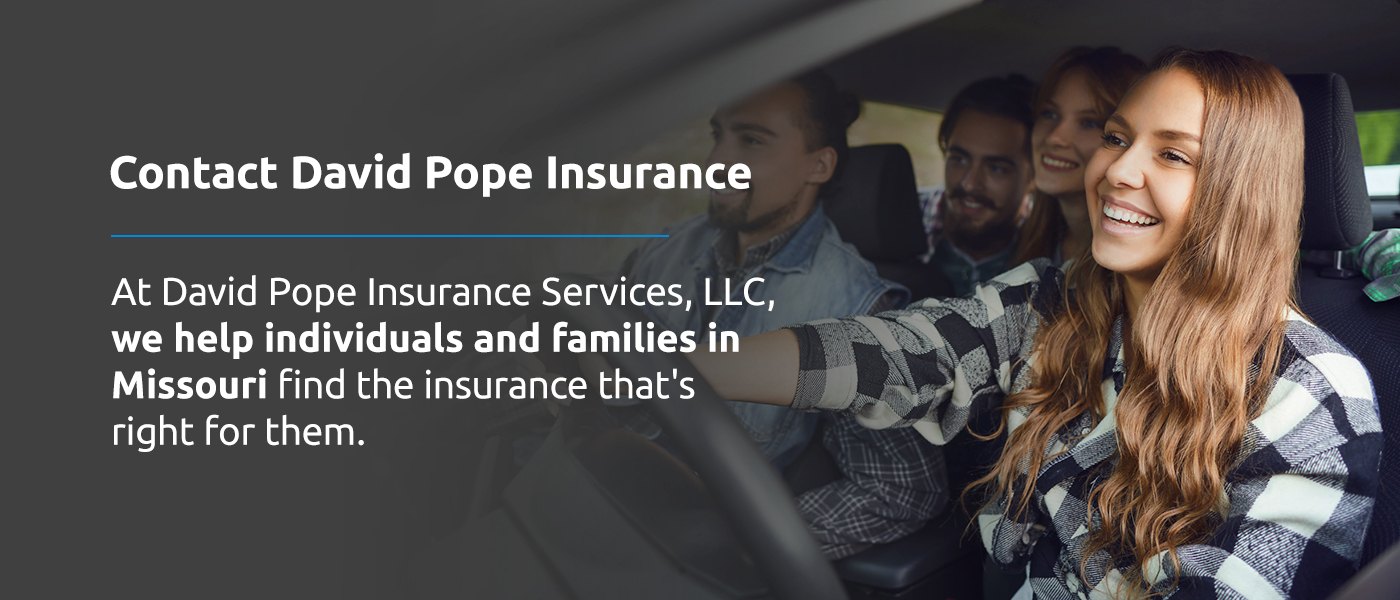While for most drivers, the default is to buy a vehicle, about 30% of new cars are leased. For some individuals and families, leasing may be the better option. Leasing may be a good option for you if you want a vehicle with the latest safety features but cannot afford to purchase a new vehicle. When you lease a vehicle, monthly payments can be near or even under $100.
If you want to lease a vehicle, you may still need to buy auto insurance for the leased car. It is essential to understand what insurance coverage may be required for leased vehicles. While some types of coverage may be optional for a leased car, others may be required by your lender or by law.
Pros & Cons of Leasing a Vehicle
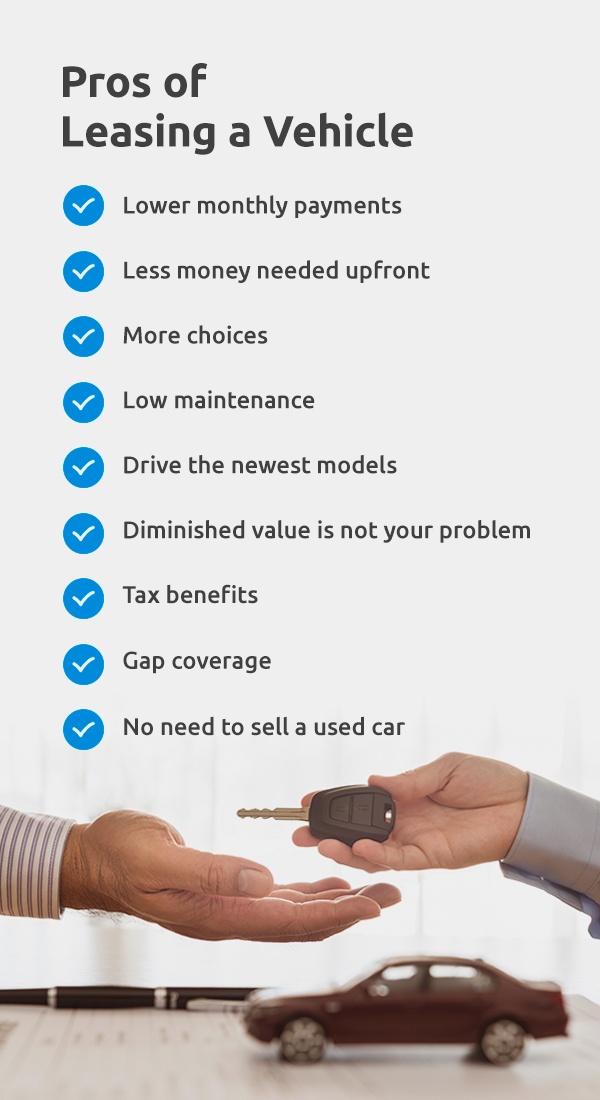
Pros of Leasing a Vehicle
Why lease a car? Most people will probably tell you it is better to buy a car, but this is not always true. In some cases, leasing a vehicle may be a better option. The following are advantages of leasing a vehicle:
- Lower monthly payments: When you lease a car, your monthly payments will likely be lower than if you purchased a car. This may mean you can afford to drive a car that you may not be able to afford to buy. Lower monthly payments are generally cited as the biggest advantage of leasing a car.
- Less money needed upfront: Though there will always be upfront fees, many vehicles can be leased without putting any money down, and upfront fees can typically be rolled into your monthly payment. When buying a car, you may need a down payment to get a decent loan rate.
- More choices: Leasing cars gives you more choices when it comes to vehicles. You don’t need to worry about a car’s quality or reliability because you’ll only be driving it for a few years. Most new cars won’t have issues during this short amount of time, allowing you to pick vehicles you may not necessarily want to buy.
- Low maintenance: If you lease for a short time, you may be covered by the car manufacturer’s bumper-to-bumper warranty for the entirety of your lease. You won’t have to worry about the costs of major repairs, and for a leased vehicle, maintenance may be free during the first years.
- Drive the newest models: When you lease vehicles, you can drive the newest model every few years. This allows you to enjoy the latest safety features and technological advances.
- Diminished value is not your problem: If you are accident-prone, leasing a car can be better than buying a car. When you buy a car and get in an accident, you may take a hit financially when you try to sell the car due to its diminished value. When you lease a car and get in an accident, on the other hand, the diminished value of the car is your leasing company’s problem instead.
- Tax benefits: Do you intend to use the leased vehicle for your business? If so, you may be able to write off the lease payment as a tax deduction. Even if you’re not a business owner, you may only be taxed on the usage portion of your vehicle lease. This means you may not have to pay taxes on the vehicle’s full price.
- Gap coverage: Gap insurance may be included for free in your lease. This coverage will protect you if your car is stolen or totaled during your lease.
- No need to sell a used car: With a leased car, you’ll no longer need to deal with the hassle of trying to sell your used vehicle. After your lease is up, all you’ll need to do is return the vehicle to the leasing company. The value of the car at the end of your lease also isn’t your problem.
Request an Auto Insurance Quote
Disadvantages of Leasing a Vehicle
Though leasing a car can be a good option, there are some disadvantages you may want to consider before leasing a vehicle, such as:
- You don’t get to keep the vehicle: The main disadvantage of leasing a vehicle is that you are paying for a car you don’t get to keep. If you prefer to invest in a vehicle you can own for years, then buying may be the right option for you.
- You will always be making monthly payments: In the long run, leasing vehicles can be more expensive than buying vehicles. Leasing a new car means you’ll be paying for the car during the years when it depreciates the most. After your lease is up, you’ll either need to purchase a car or lease another. When you lease, you will always be making monthly payments, whereas if you buy a car, you won’t have to make monthly payments after you pay off your loan.
- You may need to pay various fees: When you lease a car, you may need to pay several fees, including an acquisition fee and a disposition fee. You may also need to pay wear and tear fees when you return the vehicle.
- Your insurance cost may be higher: Additionally, your cost for auto insurance may be higher than you expect or higher than you would pay for a car you purchase.
- You may be limited in how much you can drive: Most leases restrict how many miles you can drive per month, so leasing a vehicle may not be a good option for you if you plan to drive long distances. Miles that you drive over your driving limit may be penalized at a high rate.
- You may be at a disadvantage if you don’t have good credit: If you don’t have good credit, you may not want to lease a vehicle. In fact, some companies may not allow you to lease a vehicle unless you have a stable financial situation and a good credit score.
- You may not be able to cancel your lease when you want: A lease agreement is similar to a rental agreement in that you cannot just walk away whenever you want – not without paying stiff penalties. While you can sell a vehicle you own whenever you want, a lease can be difficult to terminate.
- You cannot customize your leased vehicle: If you like to customize your car, you may not be able to do so with a leased vehicle. At the end of your lease, you’ll need to return the car in the same configuration and condition as when you received it, which means you cannot modify the paint, accessories or engine.
How to Lease a Car in Five Steps
If you think leasing a car may be the right option for you, follow these steps to lease a vehicle.
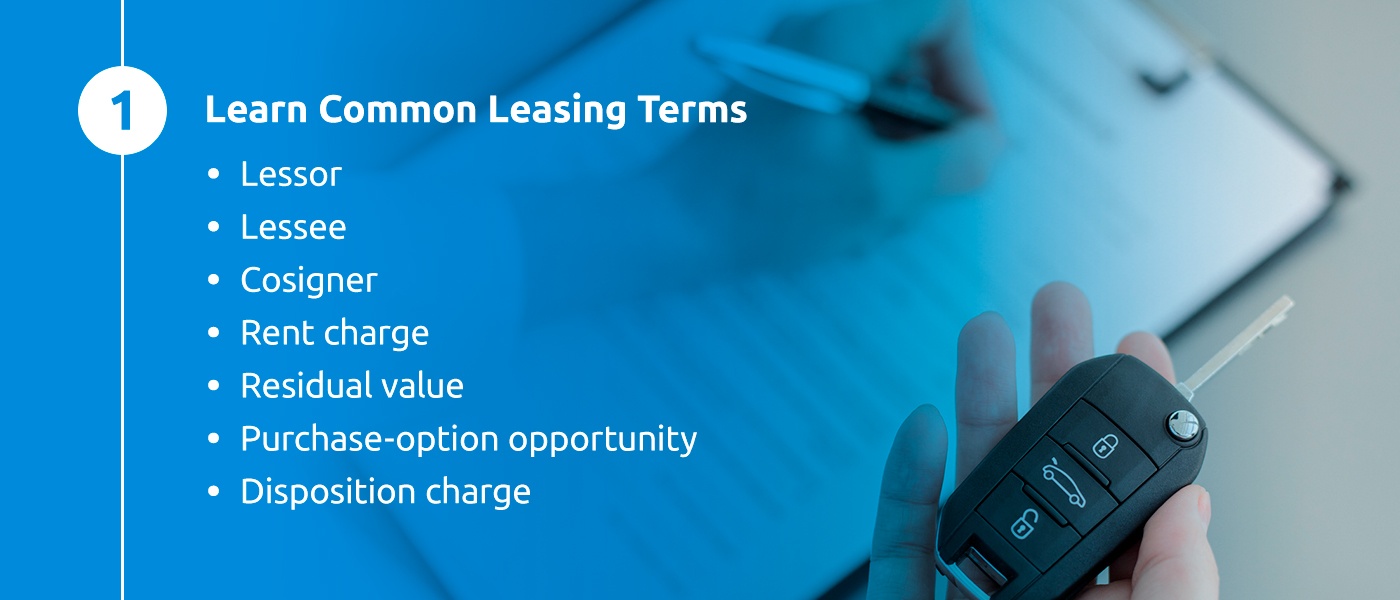
Step 1: Learn Common Leasing Terms
When you choose to lease a vehicle, you will hear various new terms. Not knowing these terms could make the process of leasing a car more challenging and confusing. The following are some of the common leasing terms you may want to know:
- Lessor: A lessor is a person granting a lease. The lessor has legal obligations related to your lease contract and is considered the owner of the vehicle.
- Lessee: You are the lessee, or the person who is being granted the lease.
- Cosigner: Your cosigner is someone who acts as another guarantor on your car lease, allowing you to qualify for your lease or secure better terms.
- Rent charge: Your rent charge is your main expense for a car lease and is paid monthly.
- Residual value: Your car’s residual value is the estimated projected value when your lease is over. This value is determined at the start of your lease and is used to calculate your monthly payment.
- Purchase-option opportunity: This term refers to your right to purchase the leased vehicle during your lease or when the lease ends.
- Disposition charge: A disposition charge is a fee to defray the cost of prepping and selling a vehicle when the lease ends.
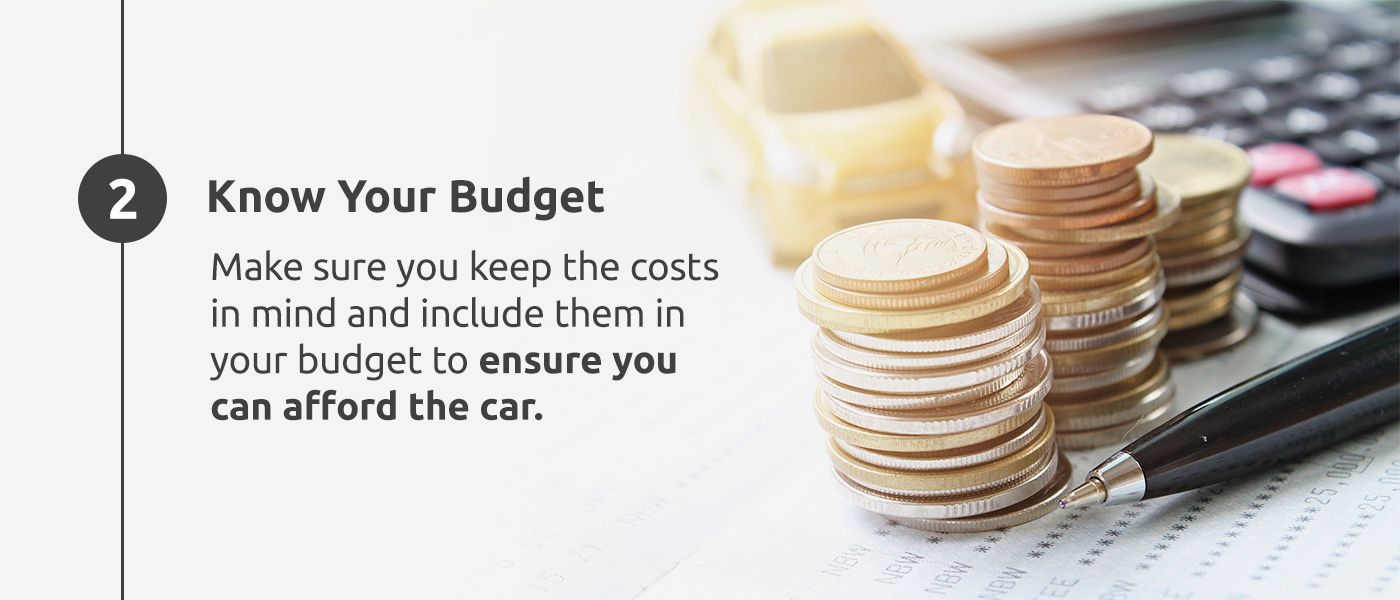
Step 2: Know Your Budget
Next, determine your budget for your leased car. When you lease a vehicle, you can expect the following major expenses in addition to the monthly rent charge:
- Down payment: The more you put down on your vehicle upfront, the lower your monthly payments will be. Consider what you have saved and how much you can put down on your car upfront.
- Car insurance: You will also need to pay auto insurance for leased vehicles, and your cost for insurance may be higher than you’ve paid for cars you owned. Be sure to include the cost of insurance in your budget. Check out our auto insurance guide for more information!
- Car tax: Beyond your monthly payment, you may also be responsible for paying fees and taxes each month.
Of course, this doesn’t include your costs for gasoline and maintenance like oil changes. Make sure you keep these costs in mind and include them in your budget to ensure you can afford the car.
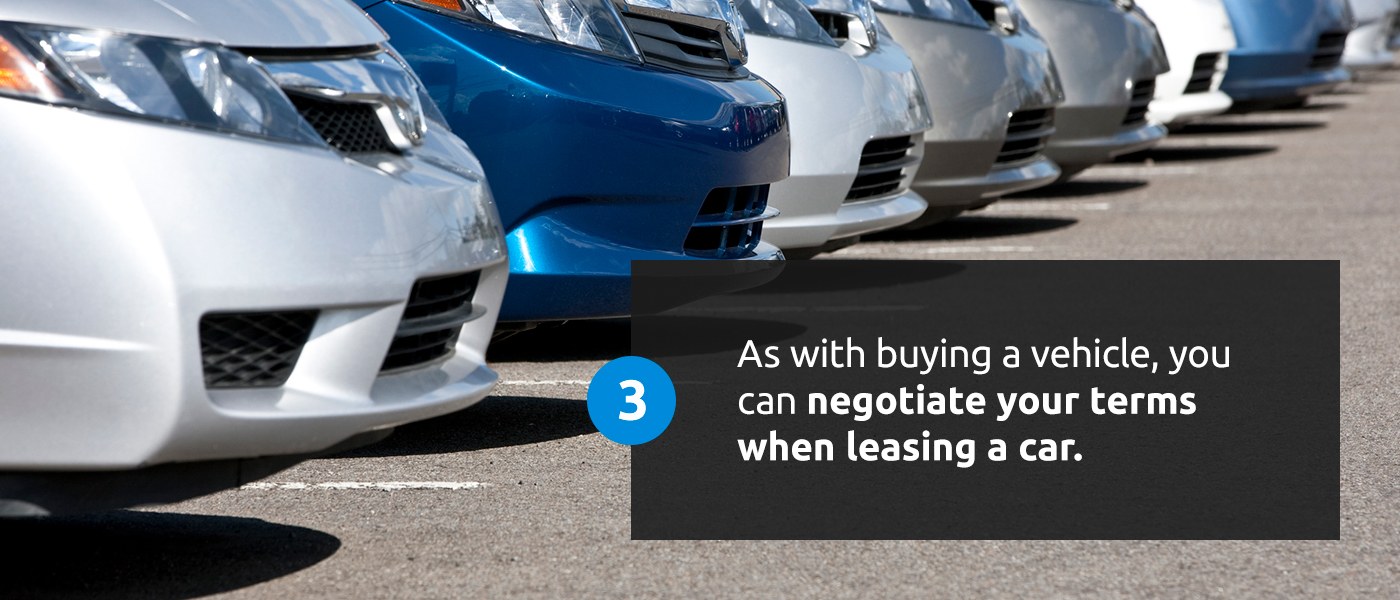
Step 3: Choosing a Car and Negotiate
You may want to research your options for vehicles before visiting a car dealership to determine what cars you may want to drive. After doing your research, you can visit a dealership to see what options are within your price range. While shopping, take cars for test drives, weigh the pros and cons of each vehicle and find a car you are willing to drive for a few years.
Leasing specials are offered occasionally, so you may want to shop around at local dealerships and online to find what is available. As with buying a vehicle, you can negotiate your terms when leasing a car. Lease terms like cost, interest rate and mileage can be negotiated. Negotiating can help you receive a lease contract that better fits your budget and needs.
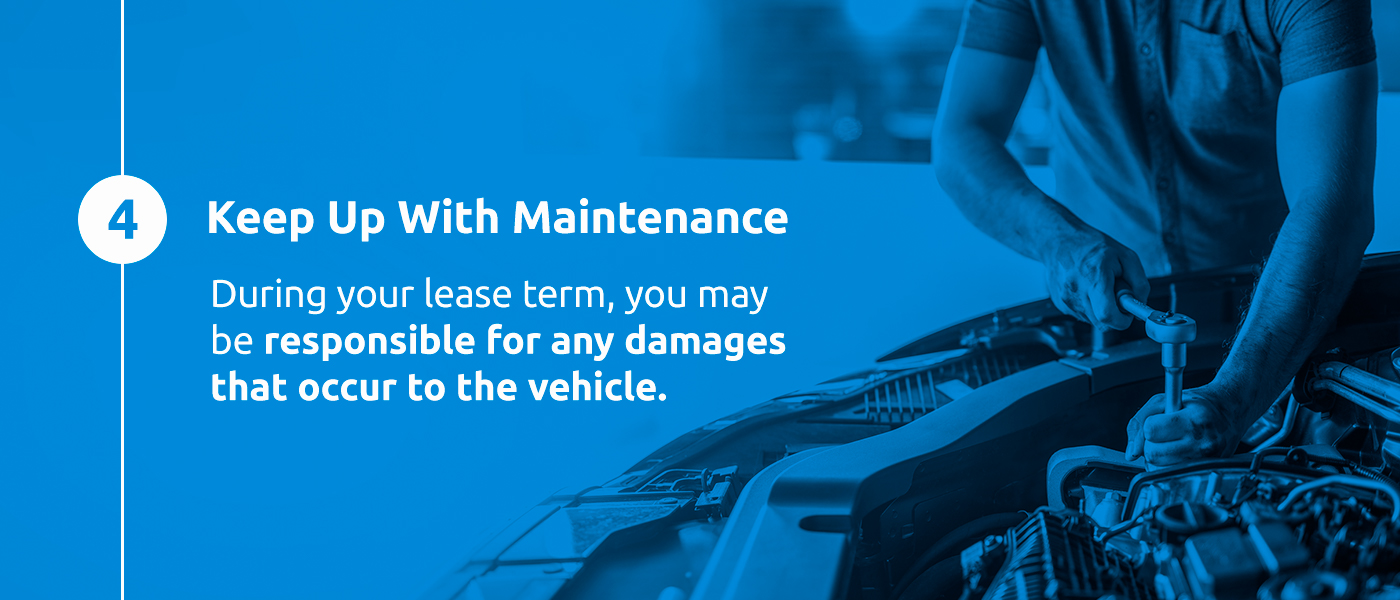
Step 4: Keep Up With Maintenance
After you drive your leased car off the lot, remember to take care of your vehicle. For leased vehicles, the lessee typically handles routine maintenance. Not keeping up with maintenance may cost you when your lease comes to an end. The lessor covers major repairs under warranty terms. Always check your specific lease agreement for details. Fortunately, some lease agreements include maintenance, which means you may not have to pay for your car’s routine maintenance.
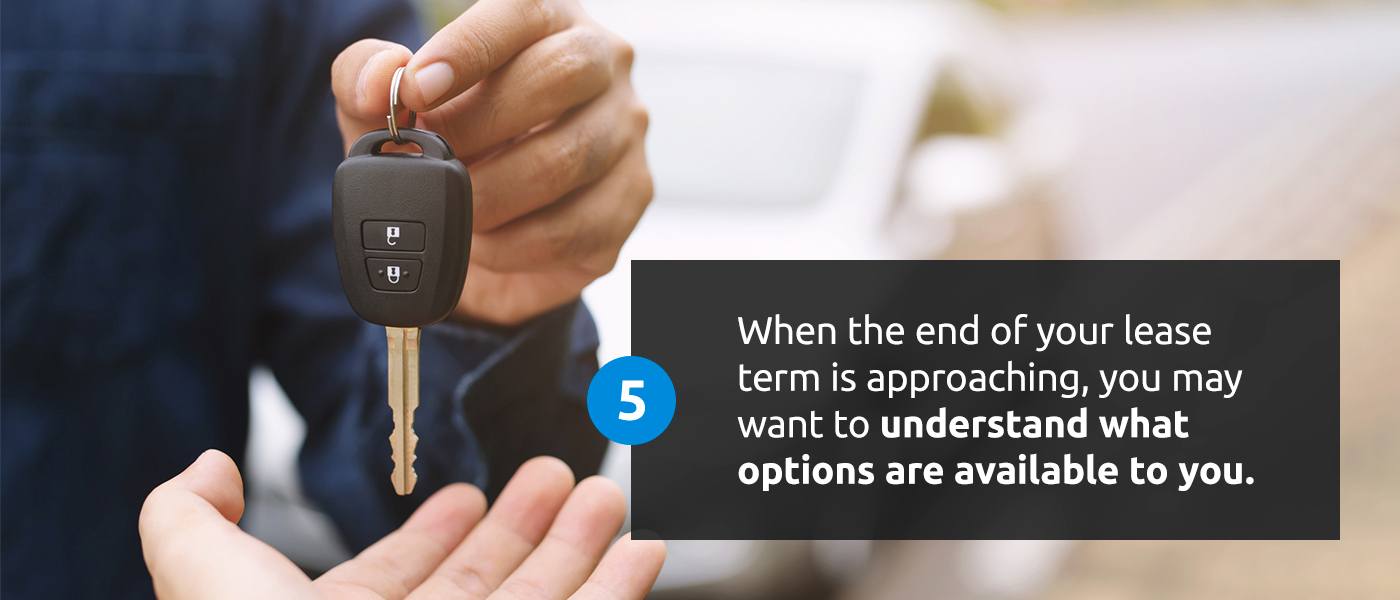
Step 5: Understand Your Future Options
When the end of your lease term is approaching, you may want to understand what options are available to you. Your options may include returning the vehicle, extending your lease, purchasing the vehicle, getting another leased car or buying another car.
A few months before the end of your lease, you may want to reevaluate your budget and determine what the right option is for you, whether you want to purchase the vehicle, get another vehicle or extend your lease.
Insuring Your Leased Vehicle
Though a leased car is not a vehicle you own, you may still be required to obtain insurance for the vehicle. Auto insurance can protect you if you are in an accident in a leased car.
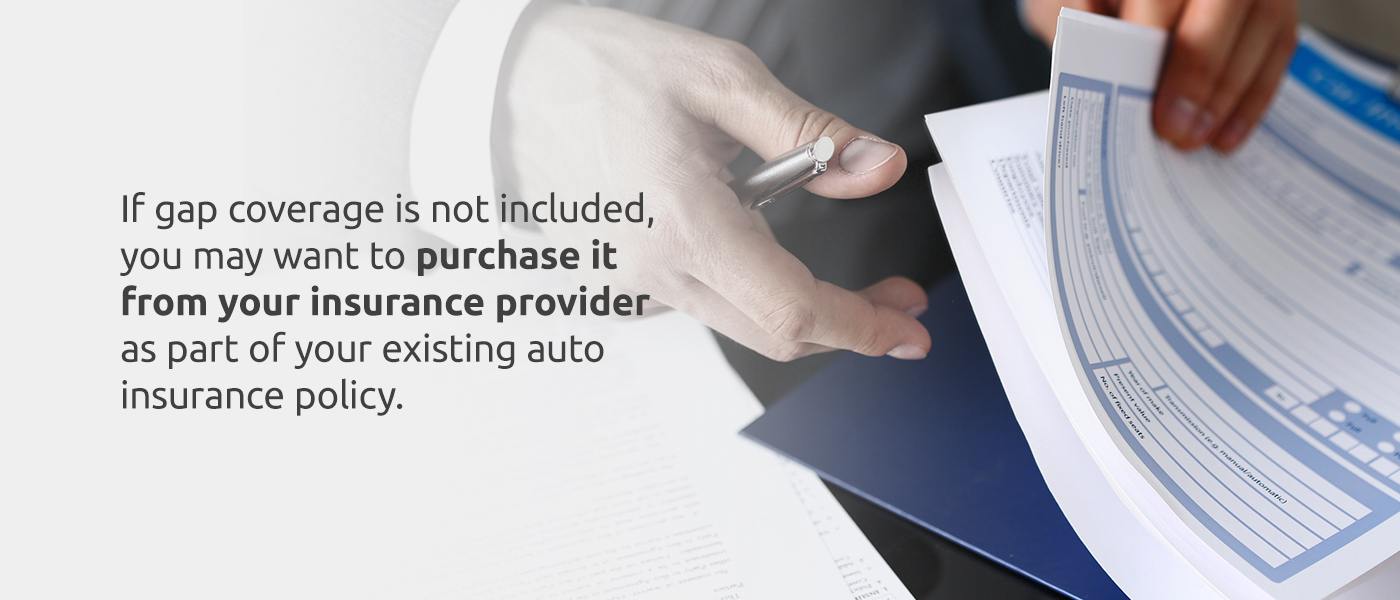
What Insurance Is Required for Leased Vehicles?
The leasing company or bank financing your leased vehicle has a monetary stake in it, which means the organization will want to ensure that sufficient funds are available for repairs in the event of an accident. For this reason, the bank or leasing company will require that you have adequate insurance. Leased car insurance requirements include coverages required by law and coverages required by a leaseholder. The following are the insurance coverages that are required by law:
- Bodily injury liability coverage: In most states, drivers are required to carry liability coverage. This coverage helps you pay for another person’s expenses if you cause a crash that damages the person’s property or injures them.
- Uninsured motorist coverage: Depending on your location, you may be required by law to have this coverage. If you are hit by a person who does not have auto insurance, then uninsured motorist coverage can help cover your medical bills.
- Underinsured motorist coverage: This coverage is similar to uninsured motorist coverage and covers you if you are struck by an underinsured driver. An underinsured driver is a driver whose liability limits are not high enough to cover your medical bills after the accident.
- Personal injury protection: Some states legally require you to carry personal injury protection in addition to, or instead of, underinsured and uninsured motorist coverage.
The leasing company or bank that finances your leased vehicle owns it. To protect its financial interest in your leased car, the company may require that you carry the following insurance coverages:
Many leasing companies include gap coverage automatically in your lease payments. If your leased car is totaled, gap insurance will help pay off what you still owe on the lease. If you intend to lease a car, ask your leasing company whether they include gap coverage in your contract.
If gap coverage is not included, you may want to purchase it from your insurance provider as part of your existing auto insurance policy, especially if you put down less than 20% on your car.
Request a Free Car Insurance Quote
Do You Need Insurance on a Leased Vehicle?
When it comes to leasing a vehicle, full coverage is almost always required. Full coverage refers to the combination of comprehensive insurance and collision insurance. Failing to obtain the necessary amount of auto insurance may lead to the leasing company ending your lease and demanding you return the vehicle.
Costs of Insuring a Leased Vehicle
How much you will pay to insure a leased vehicle depends on your state’s requirements, the premiums set by your insurer and your driving record. If you have a history of traffic accidents, citations or violations, you may pay a higher rate for car insurance. The type of vehicle you drive may also impact your costs, as cars that are more expensive or sporty may be pricier to insure.
Common Leasing Questions
Have more questions about leasing a vehicle or insurance for leased cars? Below are answers to some frequently asked leasing questions.
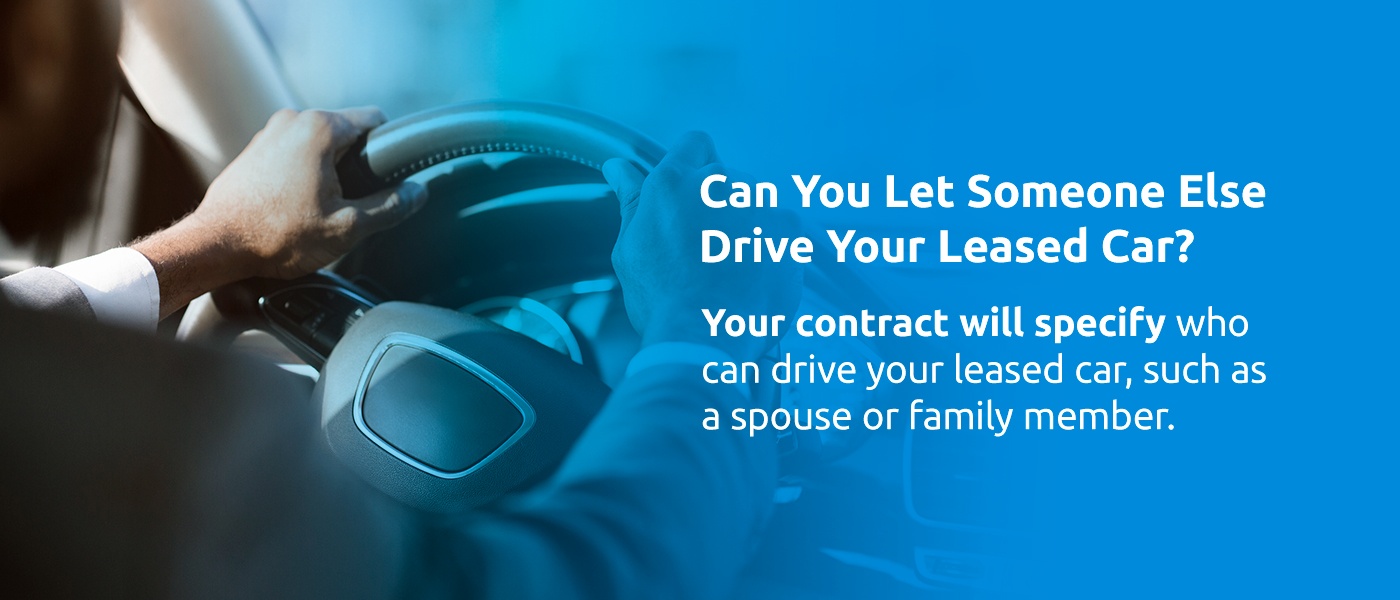
Can You Let Someone Else Drive Your Leased Car?
Whether someone else can drive your leased car depends on your lease contract. Your contract will specify who can drive your leased car, such as a spouse or family member. For a driver outside of your contract, lease companies tend to require that you request permission for this driver to use your leased vehicle. While a leasing company may allow additional drivers, the lease holder is ultimately responsible. Carefully consider your needs and ability to commit before agreeing to any financial arrangement.
If you are unsure about who can drive your leased vehicle, read your contract or get in touch with your lease company.
What Happens If You Have an Accident in a Leased Car?
If you have an accident in a leased car, you should follow the same steps you would if you owned the vehicle.
- Remain at the scene of the crash.
- Check for injuries.
- Contact law enforcement.
- Seek medical attention.
However, the process of filing an insurance claim will be different for a leased vehicle. After a crash, you should notify both your leasing company and insurer. Follow the steps listed by each company for how to proceed after an accident. You may need to take your leased vehicle to a shop so it can be evaluated and the cost for repairs can be estimated.
Your insurer will cover the costs of your repairs, but you may still owe your leasing company for any remaining payments. These payments may be taken care of, however, if you have gap coverage.
Contact David Pope Insurance
At David Pope Insurance Services, LLC, we help individuals and families in Missouri find the insurance that’s right for them. We pride ourselves on being our customers’ one-stop shop for Missouri insurance agents, and we can help you find a quality insurance policy with an affordable premium whether you’re looking for:
- Auto insurance: Car accidents can happen anytime, so whether you own or lease a private passenger vehicle, classic vehicle, RV, motorcycle or boat, we can help you find the right policy.
- Home insurance: At David Pope Insurance, we can help you find the comprehensive homeowners insurance that protects your home and your family from perils like fire, theft, liability and wind damage. If you are a renter, we can offer you coverage for your belongings. When it comes to your home, you deserve the peace of mind that comes with knowing you are prepared for the unexpected.
- Commercial insurance: Commercial insurance can offer the unique protection your business needs against the many risks that may be present, including for workers’ comp and general liability.
- Life insurance: A life insurance policy can ensure your loved ones are protected financially in the event of your death.
Contact Us Today
We can help you find an affordable, customized plan that fits your circumstances and meets your unique needs. If you will be leasing a high-end car, contact us at David Pope Insurance to learn more about obtaining car insurance that can offer you the financial protection you need. Or find what’s available to you fast by requesting a free quote.








